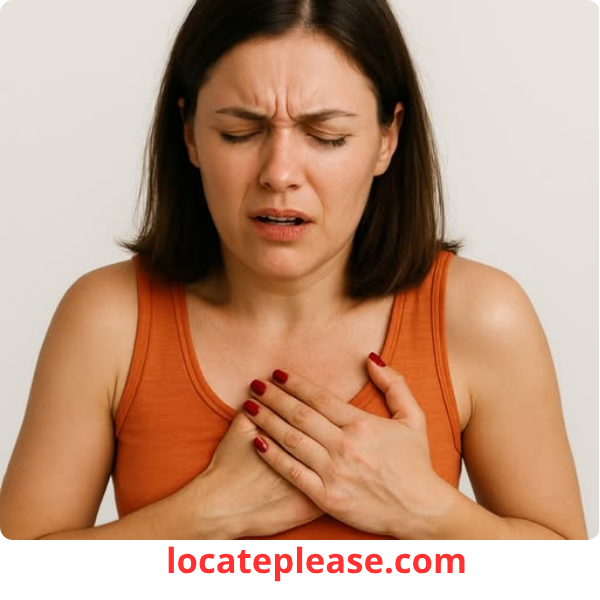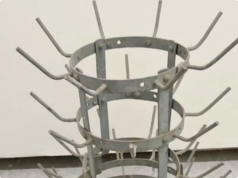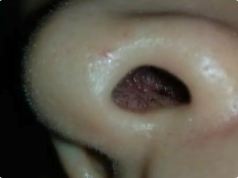If you’ve ever been sitting quietly, only to be jolted by a sudden, sharp pain in your chest — like a needle poking from the inside — you’re not alone. And while your first thought might be heart attack , the truth is, most of the time, it’s not.
These brief, stabbing chest pains are more common than you think, and for people with health anxiety, they can trigger intense fear. A racing mind, a quick internet search, and suddenly a harmless twinge feels like a death sentence.
But science has a reassuring explanation — and it’s time to breathe easy.
Chest Pain Doesn’t Always Mean an Emergency
Yes, chest pain can be a sign of a heart attack or other serious condition — but context is everything .
When pain is:
- Sudden and sharp
- Lasts only seconds to a few minutes
- Comes and goes without warning
- Not accompanied by shortness of breath, dizziness, nausea, or arm/jaw pain
…it’s unlikely to be cardiac-related.
In fact, one of the most common causes of these random chest stabs is a little-known but completely harmless condition called precordial catch syndrome (PCS) .
What Is Precordial Catch Syndrome?
Also known as Texidor’s Twinge , this benign condition typically affects children, teens, and young adults — though it can occur at any age.
Symptoms include:
- A sudden, sharp, localized pain near the left side of the chest
- Pain that worsens with breathing in
- Lasts 30 seconds to 2–3 minutes
- Disappears completely, often without treatment
What causes it?
Experts believe it’s due to a pinched nerve or irritation in the lining of the chest wall — not the heart. It often happens at rest, especially when slouching or taking a deep breath.
The good news?
There’s no danger , no long-term effects, and no treatment needed. It resolves on its own — and while it feels alarming, it’s as harmless as a muscle twitch.
Why Health Anxiety Makes It Feel Worse
For those with health anxiety (or illness anxiety disorder) , even minor physical sensations can spiral into panic.
- A chest twinge becomes a heart attack.
- A headache turns into a brain tumor.
- A quick Google search confirms the worst-case scenario — every time.
This creates a vicious cycle:
- You feel a symptom.
- You search online.
- You find scary possibilities.
- Your anxiety spikes.
- Physical tension increases — which can cause more symptoms.
And the cycle continues.
How to Manage Symptoms Without Panic
The key to breaking this cycle is awareness, not alarm .
✅ Helpful Tips:
- Assess the Context
Brief, isolated pains that come and go are rarely dangerous. Ask yourself:- Is it recurring in the same spot?
- Does it happen during stress or poor posture?
- Has it gone away before without consequences?
- Keep a Symptom Journal
Write down when the pain occurs, how long it lasts, and what you were doing. You’ll likely notice a pattern — and reassurance. - Avoid “Dr. Google”
Internet searches prioritize rare, severe conditions. This doesn’t mean you have them — it means algorithms feed fear. Save the search for after you see a doctor. - Practice Deep Breathing
When anxiety hits, try this:- Inhale slowly through your nose for 4 seconds
- Hold for 4
- Exhale through your mouth for 6
- Repeat 5 times
This calms your nervous system and reduces physical tension.
- Know the Real Red Flags
While most chest pain is harmless, don’t ignore these warning signs:- Pain lasting more than 5–10 minutes
- Pressure, squeezing, or fullness in the chest
- Pain radiating to the arm, jaw, or back
- Shortness of breath, sweating, nausea, or dizziness
→ If you experience these, seek medical help immediately.
Mental Health Matters — Even When Talking About Physical Pain
Your body and mind are deeply connected. Anxiety can manifest as real physical symptoms — muscle tightness, chest tightness, dizziness — even when there’s no underlying illness.
Understanding health anxiety isn’t about dismissing your feelings — it’s about protecting your peace . Learning to differentiate between a fleeting twinge and a true medical emergency can save you from unnecessary ER visits, sleepless nights, and constant fear.
Final Thoughts: Not Every Pain Is a Crisis
That sudden, stabbing chest pain?
It’s probably not your heart — it’s likely just your body doing something strange, as bodies do.
Instead of reaching for your phone to Google symptoms, try this:
- Pause.
- Take a slow breath.
- Ask: Has this happened before? Did I survive?
Chances are, you have — and you will again.
Because sometimes, the most important thing you can do for your health is to stop panicking — and start trusting your body.
Not every symptom is a sentence. Sometimes, it’s just a whisper.






